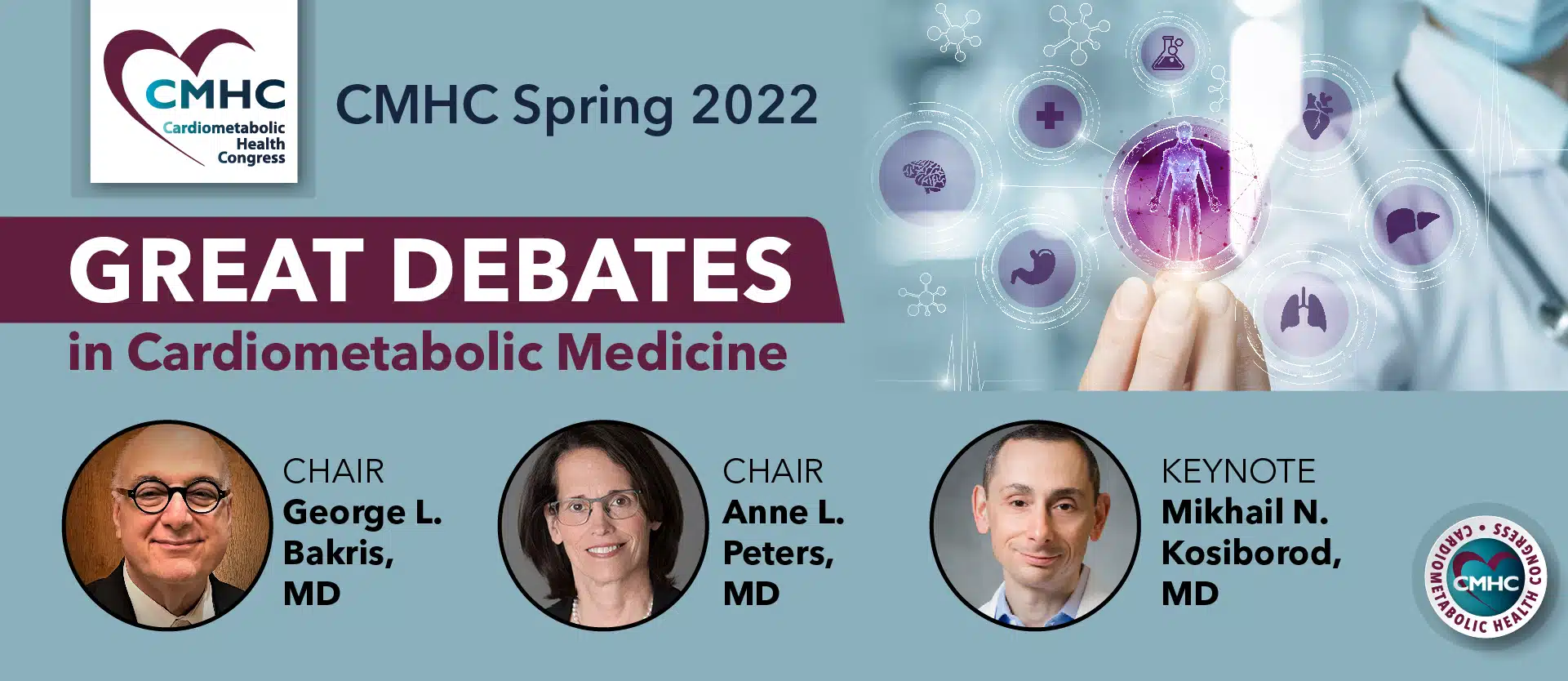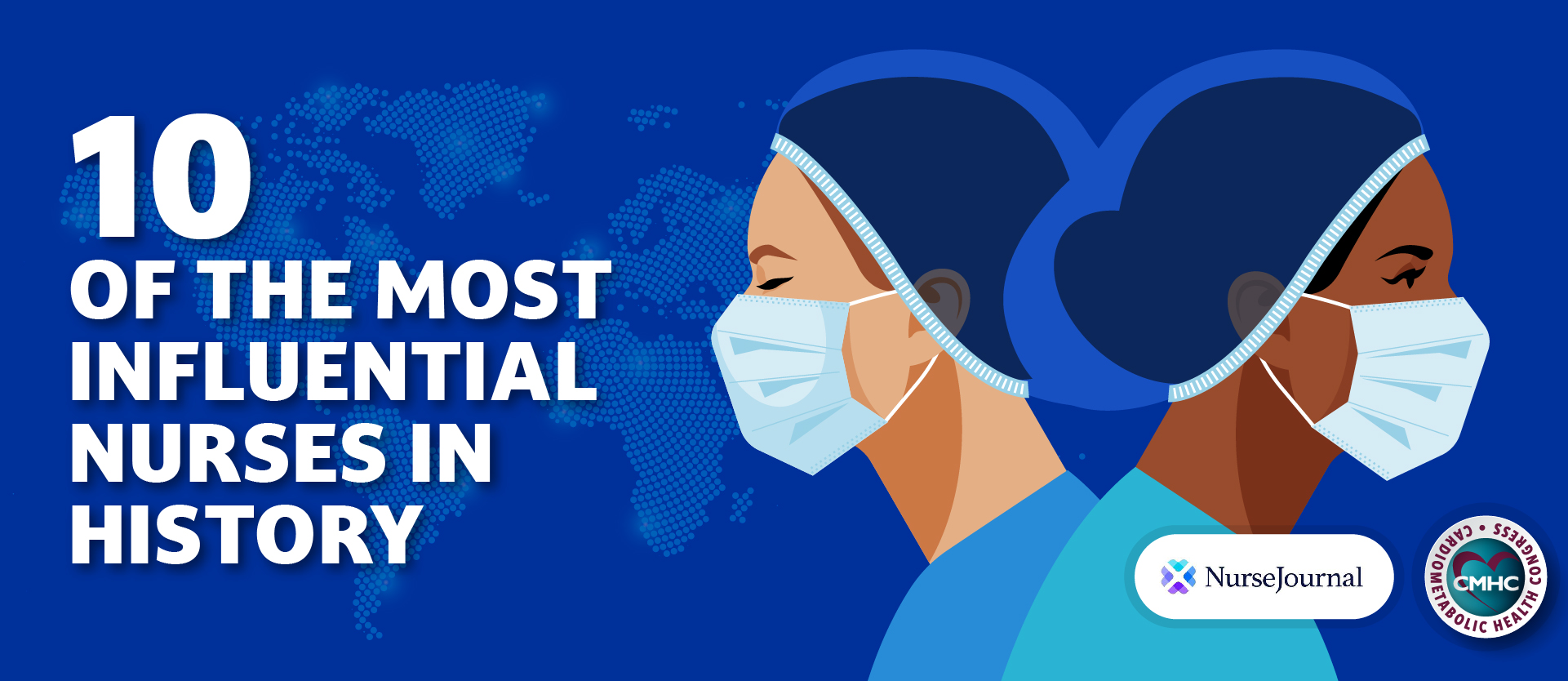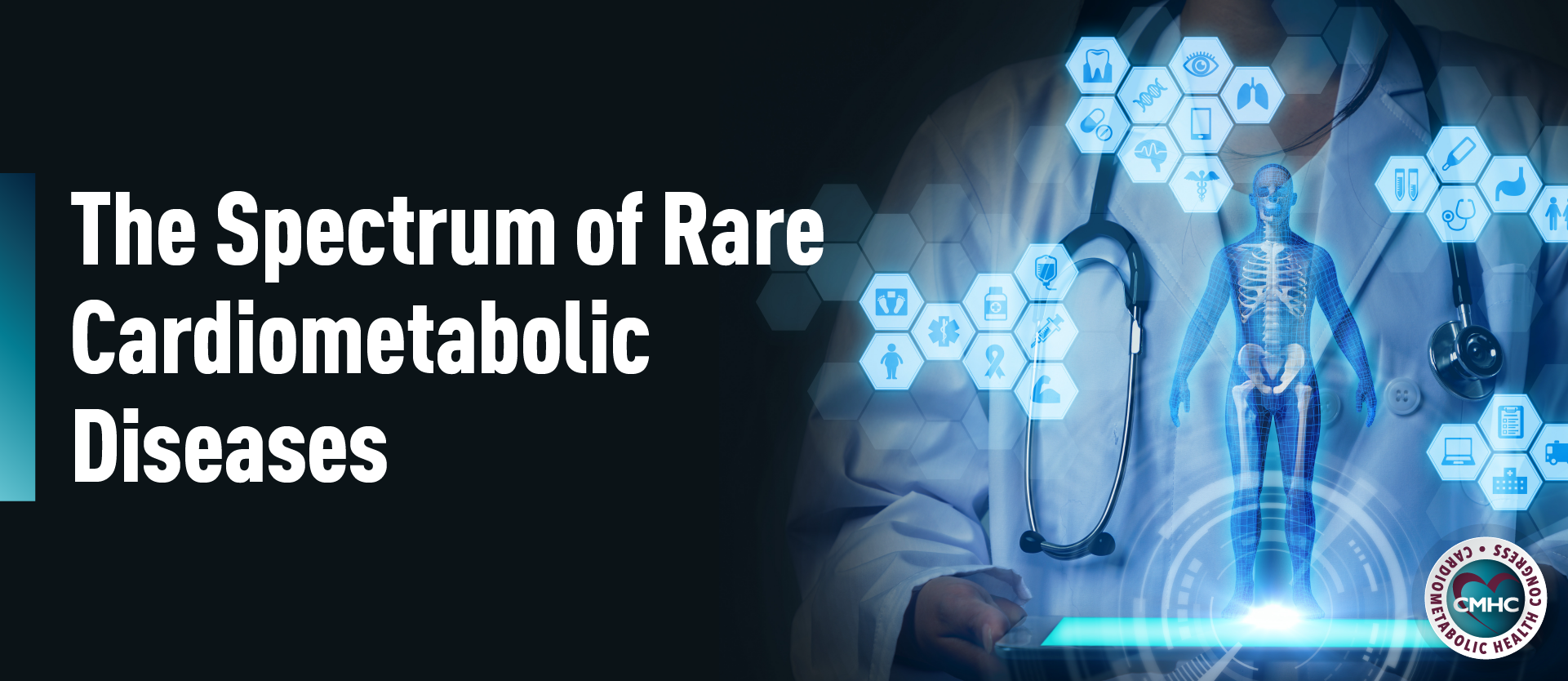Top Experts Convene to Discuss the Syndemic of COVID-19 & Cardiometabolic Disease
Boca Raton, FL, April 22, 2021 (GLOBE NEWSWIRE) — Clinical Highlights: 2021 CMHC Spring Cardiometabolic Health Congress
Top Experts Convene to Discuss the Syndemic of COVID-19 & Cardiometabolic Disease
The 2021 CMHC Spring concluded on Sunday, April 18; delivering two and a half days of critically curated content and expert perspectives on the management of cardiometabolic disease and cardiometabolic risk, as well as special sessions on the impact of COVID-19 on cardiometabolic disease, including a keynote address and panel discussions on the disproportionate burden & disparities with COVID-19. The “syndemic” of the COVID-19 pandemic along with the rising rates of obesity, diabetes, cardiovascular disease, and other cardiometabolic health conditions, has posed significant challenges to the healthcare community and will continue to do so in the near future; such topics were vastly covered during the meeting.
The event was delivered entirely online to practitioners across the nation, and through an innovative and user-friendly virtual platform participants were able to interact with faculty members, participate in audience polls, and more, all from the setting of their own choosing. Chaired by an esteemed panel of faculty members Robert H. Eckel, MD; Christie M. Ballantyne, MD; George L. Bakris, MD; Anne L. Peters, MD; Deepak L. Bhatt, MD, MPH; Keith C. Ferdinand, MD; Clyde W. Yancy, MD, MSc, MACP; and Pamela B. Morris, MD, the conference provided actionable insights on late-breaking research, advanced clinical approaches to cardiometabolic challenges, and practical strategies to improve patient outcomes.
Keynote: Call to Action: Addressing the Disproportionate Burden & Disparities with COVID-19
The COVID-19 pandemic has resulted in significant morbidity and mortality across the world and is showing no signs of slowing down. As we have started to better understand the impacts of COVID-19, at the same time, there is much uncertainty, limited evidence, and conflicting reports on managing patients with chronic conditions in this new area, which can all impact delivery of care and overall patient outcomes. By now, it is established that the burden of cardiometabolic risk, including CVD, diabetes, atherosclerosis, hypertension, obesity, and more, is higher in certain racial and ethnic minorities, including African Americans, LatinX, and Native Americans. As such, it is by no means a coincidence that the burden of COVID-19 morbidity and mortality is disproportionate towards these communities, stemming not only from a higher prevalence of the comorbidities but also from socio-economic factors. As a focus on these disparities and undue burden, during the meeting’s keynote address, CMHC’s Senior Planning Committee member Keith C. Ferdinand, MD, discussed rationale for these disparities, including genetic, socio-economic, and cultural factors. Dr. Ferdinand mentioned that “the pandemic is new, but these health inequities are not.” As vaccines for COVID-19 are now available, efforts must be made to not only ensure access to them in racial and ethnic minority populations but also how to effectively combat vaccine hesitancy that is high in these populations, in part due to historical mistrust and previous bias towards healthcare systems. Dr. Ferdinand also highlighted practical steps, tips, and strategies that clinicians can implement in their practices to close these gaps and educate their patients about the benefits of COVID-19 vaccines that will ultimately improve COVID-19 outcomes in underserved populations. The address was followed with a stimulating panel discussion between several key stakeholders and experts, including Kevin M. Alexander, MD, Yvonne Commodore-Mensah, Ph.D., Takeisha C. Davis, MD, MPH, Alanna A. Morris MD, and Pam R. Taub, MD, who discussed systemic racism in healthcare and how to address these disparities. They also highlighted the crucial role of patient education and provided numerous tips to address implicit bias and expand the cultural competency of clinicians.
KIDNEY DISEASE/HEART FAILURE/HYPERTENSION
This session was chaired by George L. Bakris MD and included a special symposium on “New Frontiers in Heart Failure Management,” in which Alanna A. Morris MD, emphasized that “there is a need of a new way to define heart failure.” She also accentuated that “we are now recognizing a new, universal definition of heart failure” while discussing a new expert statement in the definition and classification of heart failure. Following this talk, Stephen D. Wiviott, MD, provided crucial clinical pearls regarding the application of SGLT2i in the prevention and treatment of heart failure. He stressed that “now compelling evidence supports that SGLT2i reduces the risk of hospitalization for heart failure as well as robustly decrease the risk of progression of kidney disease.” He also reminded us that “society guidelines are catching up with these fast-moving data.” Following this talk, Ileana L. Piña, MD, discussed the new and emerging targets in heart failure, including new vasodilators, synthetic natriuretic peptides, binders of acting -myosin, etc., and summarized the data from clinical trials, assessing these novel agents to manage heart failure. Due to rapid advancements in the therapeutic landscape of heart failure, the guidelines need to be swiftly updated. The next speaker, Clyde W. Yancy, MD, perfectly summarized the previous talks and outlined potential crucial updates in the guidelines due to advancements in recent heart failure treatments. He successfully painted a clear picture of how HF guidelines might look like in 2021 and beyond, including a stronger emphasis on HF prevention, incorporation of SGLT2is and other newer therapies, as well as more inclusive considerations about health equity in the care of HF patients. This symposium concluded with a fascinating case presentation by Sarah Chuzi, MD, with an interactive panel discussion. After the break, Joseph A. Vassalotti, MD, brought the attendees’ focus from heart failure to kidney diseases and described various strategies that clinicians can employ for evaluating the risk of chronic kidney disease (CKD) progression. This was followed by Aldo J. Peixoto, MD, who shared insights and discussed recent updates in the prevention and treatment of CKD, including the updates in the KDIGO guidelines and the data with SGLT-2is, GLP-1 RAs, and novel non-steroidal MRAs for CKD. William F. Young, Jr., MD, MSc, then discussed the causes and treatment of primary aldosteronism and how it can be easily missed during diagnosis. These sessions were also followed by a panel discussion of different challenging cases of patients with CKD and various comorbidities.
DIABETES MANAGEMENT
As glycemic control remains elusive for a significant proportion of diabetes patients, the management of glycemic control in patients with diabetes and cardiovascular disease risk seems to have taken a backseat. Additionally, new agents and devices are in the development or approval phase that may help clinicians address ongoing needs in diabetes management. To bring this knowledge from trials to our clinicians, this diabetes management session, moderated by CMHC Chair Anne L. Peters, MD, aimed to seek, address and provide a solution to pertinent topics such as effective management of glycemia in patients with cardiovascular diseases by Vanita Aroda, MD, benefits of using CGMs in patients with type 2 diabetes and pre-diabetes and co-relation of “time in range” data with complications in diabetes by Viral Shah, MD and Nicholas B. Argento, MD, FACE, respectively. Benefits and how an increased usage of insulin pumps and inpatient use of CGM can optimize treatment and improve the outcomes in diabetes patients was advocated by Grazia Aleppo, MD, FACE, FACP, and Joseph A. Aloi, MD with the help of a solid trail of evidence laid by latest clinical trials and FDA approvals of many devices. To round it out, Jane Reusch, MD, explained how exercise is still an effective medicine for treating type 2 diabetes. The session ended with an extensive discussion between all the faculty that included intriguing case presentations.
OBESITY AND LIFESTYLE MEDICINE
This session chaired by Robert H. Eckel, MD took an in-depth look at obesity prevention and management by discussing comprehensive approaches, including nutritional and lifestyle modifications and recent trends in obesity treatment. Louis J. Aronne, MD kick-started the session by discussing significant ongoing developments in obesity, such as obesity pharmacotherapy, telehealth, and flexibility in dietary interventions. This talk was followed by Donna H. Ryan, MD, who provided many valuable and practical tips to help clinicians help their patients succeed in their weight loss journeys. Dr. Ryan mentioned that “like a thumbprint, every patient’s weight journey is unique.” This was followed by a panel discussion, with case presentations from each faculty and active audience participation.
In the second half of this session, expert faculty supported the benefits of dietary intervention and how it improves patients’ cardiometabolic health backed by recent results from various clinical trials and studies. To that end, Kim A. Williams, Sr., MD, Penny M. Kris-Etherton, Ph.D., and Sarah Hallberg, DO reviewed the benefits of a vegetarian diet, low carbohydrate diets, and dietary recommendations from recent guidelines on cardiometabolic health. This was followed by a stimulating panel discussion with diverse cases and perspectives.
DYSLIPIDEMIA/ATHEROSCLEROSIS/THROMBOSIS
This session focused on discussing CVD prevention in the cardiometabolic patient by exploring topics including CV risk assessment and the evolution of lipid therapy and lipid targets in light of the evolving evidence and guidance. Chaired by Christie M. Ballantyne, MD, this session also addressed the pertinent need of individualizing lipid therapy. Matthew J. Budoff, MD, discussed the role of biomarkers, imaging, and genetics in risk prediction, and Brendan M. Everett, MD updated clinicians on atherosclerotic cardiovascular diseases and how inflammation is a consistent predictor of cardiovascular risk, followed by Pamela B. Morris, MD, who discussed the recent data from clinical trials and stressed that “lower LDL-C is better and lowest is best.” Elaine M. Hylek, MD steered us to the world of atrial fibrillation and discussed stroke prevention strategies in cardiometabolic patients whereas, Deepak L. Bhatt, MD discussed updates in antiplatelet and antithrombotic therapy in cardiometabolic patients. This session also ended with a panel discussion that included an exciting case presentation from all the above faculty, including Margo B. Minissian, Ph.D.
Furthermore, there were two CME symposia: “Antithrombotic Therapy for Symptomatic PAD: Interpreting the Evidence and Recent Advances” and “Lipid Management in Very High-Risk Patients Post-MI: Applying Real-World Evidence to Improve Outcomes.” In the first symposium, Deepak L. Bhatt, MD, Marc P. Bonaca, MD, MPH, and Manesh R. Patel, MD, explored the role of antithrombotic agents in PAD, as outlined by recent clinical trials, as well as illustrated these advancements with the help of a complex patient case that considered how to administer antithrombotic and antiplatelet therapy in PAD patients. In the second symposium, Pam R. Taub, MD, Nihar R. Desai, MD, and Michael D. Shapiro, DO, explored the recommendations suggested by current guidelines for lipid therapy specifically after the incident of myocardial infarction and discussed not only recent clinical trial data but also real-world evidence. This session ended with a panel discussion of a challenging case.
Cardiometabolic Risk and COVID-19: Implications and Practice Considerations
The special Summit that marked the last day of CMHC Spring explored the connections between cardiometabolic risk and COVID-19, including the increased risk of patients with cardiometabolic disease for severe COVID-19 well as how the pandemic has impacted and continues to impact the management of existing cardiometabolic conditions. CMHC chair, Robert H. Eckel MD, chaired this session, and experts such as Chip Lavie, MD, Clyde W. Yancy, MD, and Jay H. Shubrook DO FACOFP, FAAFP from the cardiometabolic world discussed the brunt of COVID-19 on patients who are obese, have cardiometabolic comorbidities, and how there is a bidirectional relationship between diabetes, obesity, CVD, and COVID 19. They also discussed a need for a solid “game plan” to fight this disease and the resumption of various activities post-COVID-19. This activity concluded with an eventful discussion on challenging case presentation of treatment of an athlete who suffered from COVID-19, as well as a patient with diabetes who contracted COVID-19.
The pandemic has significantly affected the delivery of patient care, especially for patients with cardiometabolic diseases. Faced with these new challenges, clinicians need to find ways such as telemedicine to continue to monitor and treat their patients and deliver multidisciplinary care. Recognizing its importance, the last leg of this session was dedicated to discussing the role and evolution of telemedicine, specifically during the COVID-19 pandemic. On that account, experts Bartolome Burguera, MD, Ph.D., Daichi Shimbo, MD, Anne L. Peters, MD, and Ahmed M. Soliman, MD, educated clinicians about the emerging role of telemedicine and gave them practical steps on how to implement these to practice to ensure the continuum of care for obesity, hypertension, and glucose monitoring with an essential lesson on optimizing reimbursement in telemedicine.
This session also ended with an extensive and interactive panel discussion and provided us insights into this area of need during this syndemic.
Conclusion
Developed and led by the foremost clinicians, researchers, and industry thought leaders, the 2021 CMHC Spring delivered top-tier clinical perspectives from a myriad of specialties. Designed in direct response to the real-world clinical needs of active cardiometabolic practitioners and patients of all backgrounds, this cutting-edge event disseminated the latest science and clinically equitable strategies in cardiometabolic medicine available. If you are interested in learning more about these challenges, we recommend that you attend the upcoming 16th CMHC Annual meeting, which will be offered both in-person and live streamed from October 14-17, 2021. Additionally, do not lose the opportunity to learn more about sleep disorders and cardiometabolic health during a unique 1-day masterclass titled “The Intersection of Cardiometabolic Health and Sleep Disorders”, taking place live online on May 22, 2021. CMHC Spring 2021 was recorded and will be available for Accredited Continuing Education credits for one year.

















